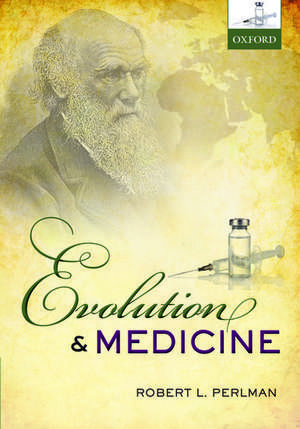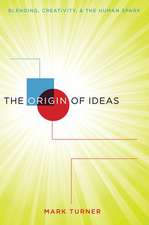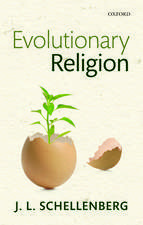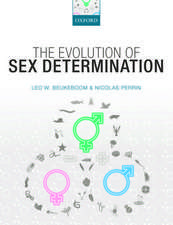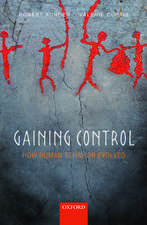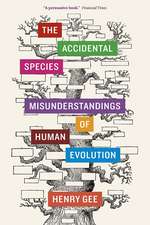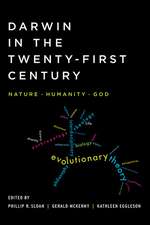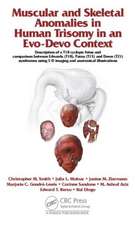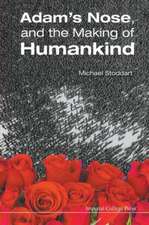Evolution and Medicine
Autor Robert Perlmanen Limba Engleză Paperback – 29 mai 2013
Preț: 324.92 lei
Preț vechi: 373.91 lei
-13% Nou
Puncte Express: 487
Preț estimativ în valută:
62.18€ • 67.52$ • 52.23£
62.18€ • 67.52$ • 52.23£
Carte tipărită la comandă
Livrare economică 11-17 aprilie
Preluare comenzi: 021 569.72.76
Specificații
ISBN-13: 9780199661725
ISBN-10: 0199661723
Pagini: 176
Ilustrații: black & white tables, figures
Dimensiuni: 169 x 240 x 10 mm
Greutate: 0.31 kg
Editura: OUP OXFORD
Colecția OUP Oxford
Locul publicării:Oxford, United Kingdom
ISBN-10: 0199661723
Pagini: 176
Ilustrații: black & white tables, figures
Dimensiuni: 169 x 240 x 10 mm
Greutate: 0.31 kg
Editura: OUP OXFORD
Colecția OUP Oxford
Locul publicării:Oxford, United Kingdom
Recenzii
In summary, Robert Perlmans Evolution and Medicine is packed with technical details, current research, and important discussions of a number of areas of concern in evolutionary medicine ... It is an excellent resource for those desiring to understand evolutionary medicine beyond the more generalized and popular writings
The book is written in a concise manner and the prose is clear, with minimal associated jargon. I would gladly recommend this volume to new medical students and practicing physicians alike, as it will surely help them to recognize the deeper evolutionary explanations behind many human diseases.
It is good to see evolutionary medicine come into its own as a discipline, and I can recommend Evolution and Medicine to those looking for an overview of the foundations of this fascinating field.
[in this] lovely and highly welcome book Perlman brings an important dimension to this debate, which is that the implications for the understanding of medicine are important. His chapters on aging, cancer, host-pathogen coevolution, sexually transmitted diseases, malaria, gene-culture evolution, and man-made diseases are full of insighits.
Robert L. Perlman's Evolution and Medicine [..] offers a series of examples that beautifully illustrates the relevance of evolutionary thinking in medicine.
The well-researched and documented work includes key up-to-date papers. It makes a nice introduction to this timely topic.
His [Perlman] choice of subject is so astute, and his writing is so engaging and lucid that I plan to use it as a textbook.
The book is written in a concise manner and the prose is clear, with minimal associated jargon. I would gladly recommend this volume to new medical students and practicing physicians alike, as it will surely help them to recognize the deeper evolutionary explanations behind many human diseases.
It is good to see evolutionary medicine come into its own as a discipline, and I can recommend Evolution and Medicine to those looking for an overview of the foundations of this fascinating field.
[in this] lovely and highly welcome book Perlman brings an important dimension to this debate, which is that the implications for the understanding of medicine are important. His chapters on aging, cancer, host-pathogen coevolution, sexually transmitted diseases, malaria, gene-culture evolution, and man-made diseases are full of insighits.
Robert L. Perlman's Evolution and Medicine [..] offers a series of examples that beautifully illustrates the relevance of evolutionary thinking in medicine.
The well-researched and documented work includes key up-to-date papers. It makes a nice introduction to this timely topic.
His [Perlman] choice of subject is so astute, and his writing is so engaging and lucid that I plan to use it as a textbook.
Notă biografică
Robert Perlman received an MD and a PhD (Biochemistry) from the University of Chicago and has had a career in academic medicine. He did research and taught at the National Institutes of Health, Harvard Medical School, and the University of Illinois at Chicago before returning to the University of Chicago. He has carried out research in a variety of fields, including the regulation of gene expression in bacteria and the biology of the sympathetic nervous system. He has been actively involved in medical education for most of his academic career and has taught courses on evolutionary medicine at the University of Chicago for over ten years.
